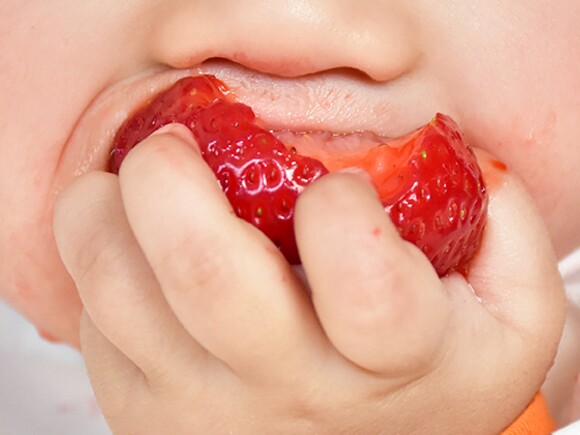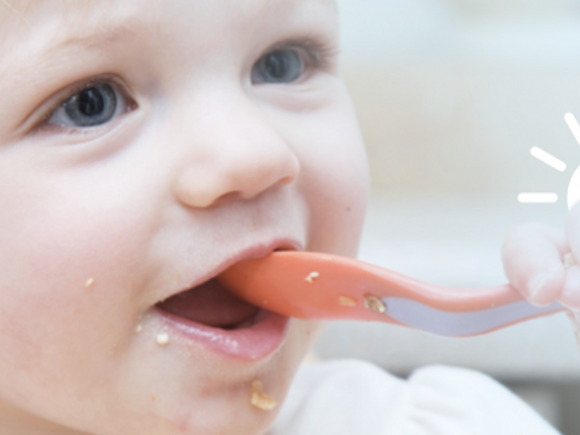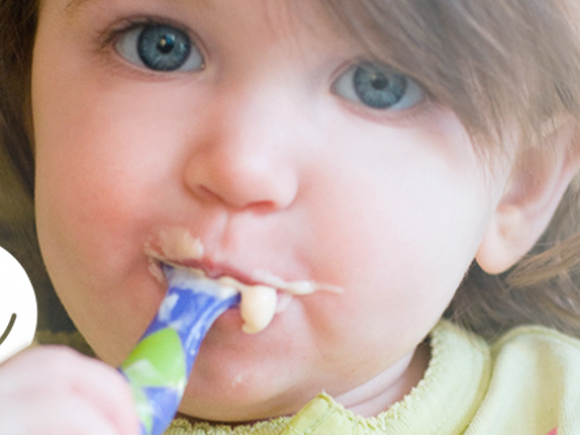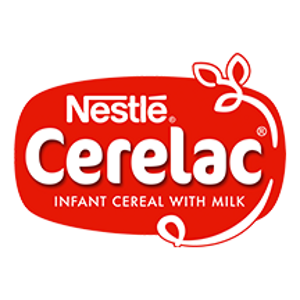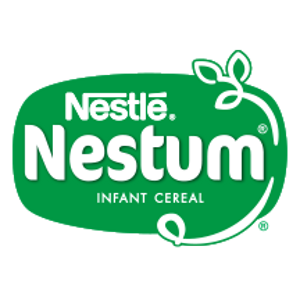In this enriching exploration of parenthood, you may find yourself in the exciting realm of your baby's first foods. Introducing solids marks a significant milestone, and understanding the nuances of this culinary adventure is key to ensuring a nutritious and enjoyable transition.
Discover age-appropriate recipes and the joy of witnessing your baby's evolving taste preferences is vital when you start giving him his first foods.
As you embark on this flavorful journey, in Baby&Me we want to be your companion, providing valuable information to make the introduction of baby's first foods, a delightful and nourishing experience for both you and your little one.
Is My Baby Ready to Eat Solid Foods?
The transition from milk to solid foods is a pivotal milestone in your baby's development, and determining the right time for this culinary adventure requires careful consideration. Here are key indicators to help you gauge if your baby is ready to take those first delightful bites:
- Age and developmental signs: The American Academy of Pediatrics recommends introducing solid foods around six months of age. At this point, most babies have achieved the developmental milestones necessary for safe and effective swallowing.
- Head and neck control: Your baby should be able to sit upright with minimal support and maintain good head control. This ensures they can swallow food safely and reduces the risk of choking.
- Loss of tongue thrust reflex: Babies are born with a natural reflex to push foreign objects out of their mouths using their tongues. When this reflex diminishes, usually around six months, it indicates that your baby is developmentally ready to manage more textured foods.
- Increased appetite and satiety: While your baby may show interest in solids, it's crucial to ensure that breast milk or formula remains their primary source of nutrition. Solid foods at this stage are complementary, gradually becoming a more significant part of their diet.
- Intact swallowing skills: If your baby can swallow pureed or mashed foods without gagging excessively, it suggests they are developing the necessary oral motor skills.
Observing these signs collectively provides valuable insights into your baby's readiness for solid foods.
How Do I Start My Baby on Solid Foods?
Embarking on the adventure of introducing your baby to solid foods is a joyous occasion that requires a thoughtful and gradual approach. Begin with small portions, as your baby is still relying on breast milk as their primary source of nutrition. Gradually increase the amount as they show interest and comfort with eating.
Opt for smooth and finely pureed textures initially. As your baby becomes accustomed to eating, you can gradually introduce thicker textures and small soft pieces. Over time, gradually introduce a variety of foods, including different fruits, vegetables, proteins, and grains. This helps your baby develop a well-rounded palate.
Healthy Foods for My Baby
As you navigate the introduction of solid foods to your little one, the focus shifts to nutrient-rich options that support their growth and development. You can introduce a lot of new healthy foods:
- Avocado is rich in healthy fats, offers a creamy texture and provides essential nutrients like potassium and vitamin E.
- Sweet potatoes are packed with beta-carotene, and they are a nutritious choice that supports eye health and provides a natural sweetness.
- Bananas are an easily digestible fruit, bananas are a great source of potassium and offer a convenient, portable snack.
Remember to introduce new foods gradually, observing your baby for any potential allergies or sensitivities. Creating a diverse and balanced diet early on lays the foundation for healthy eating habits in the future.
Consult with your pediatrician for personalized guidance based on your baby's specific needs and developmental progress.

Tips for Baby’s First Foods
Here are essential tips to make the transition to baby's first foods a smooth and enjoyable experience:
- Start with single-ingredient foods: This helps identify any potential allergies and allows you to monitor your baby's response to each new food.
- Be patient and persistent: Babies may initially reject certain foods. Stay patient and offer rejected foods again after a few days. Remember that taste preferences evolve.
- Gradual introduction of textures: Begin with smooth textures and gradually introduce thicker consistencies and small soft pieces as your baby develops the ability to chew.
- Create a positive eating environment: Make mealtimes enjoyable. Create a positive eating environment with minimal distractions and encourage your baby to explore and play with their food.
- Offer water in a cup: Introduce a small amount of water in a cup during mealtimes. This encourages sipping and helps develop good hydration practices.
- Embrace self-feeding: As your baby develops fine motor skills, encourage self-feeding with baby-friendly finger foods. This fosters independence and hand-eye coordination.
- Monitor choking hazards: Pay attention to food sizes to minimize choking hazards. Cut or mash foods into small, manageable pieces appropriate for your baby's developmental stage.
- Consult with your pediatrician: Consult with your pediatrician for personalized guidance based on your baby's unique needs and developmental progress. They can provide insights into specific nutritional requirements.
Navigating a baby's first foods is a shared experience of discovery and joy. By approaching this culinary adventure with a mix of patience, attentiveness, and a spirit of exploration, you set the stage for a positive relationship with food that will accompany your baby throughout their developmental journey.
Join
Get full access to expert-backed nutrition support
Nutrition
Learn about nutrition at your own pace
Nutrition experts
Contact our nutritionists at any time to answer your main questions about nutrition
Tools
Try our tailored practical tools

Are you looking for more information or advice for feeding your baby correctly? Contact our experts.
Join
Get full access to expert-backed nutrition support
Nutrition
Learn about nutrition at your own pace
Nutrition experts
Contact our nutritionists at any time to answer your main questions about nutrition
Tools
Try our tailored practical tools
Are you looking for something?
Try our advanced search engine. We will always have something for you!




